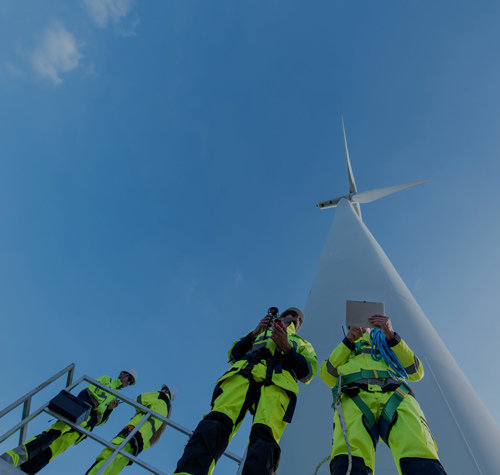
- Link to Home page
- Link to Investors page
- Link to Corporate Governance
Corporate Governance
Corporate Governance Report
Effective corporate governance provides the foundation for value creation, which in turn is the ultimate goal for Aker ASA and holding companies* (Aker). It is a prerequisite for an industrial investment company to succeed. Corporate governance is therefore a key concern for Aker ASA’s Board of Directors (the Board) and employees, as well as in the exercise of ownership in Aker’s portfolio of investments.
Aker believes in active ownership. Shareholders with clearly defined strategic goals for their investments and who are involved through the boardroom and direct dialogue with company management, promote shareholder value. The active ownership provides direction and purpose.
Aker’s main shareholder, TRG Holding AS, is actively involved in Aker through its main owner, Kjell Inge Røkke. Similarly, Aker is closely involved in the monitoring and follow-up of companies in which Aker is the main shareholder. Aker’s management model is also discussed in the Board of Directors’ Report for 2024.
Pursuant to section 2-9 of the Norwegian Accounting Act and the recommendations in the Norwegian Code of Practice for Corporate Governance (NUES), the Board continuously reviews and updates the company’s corporate governance principles.
The individual recommendations of NUES are discussed below. Aker’s principles are largely consistent with the recommendations.
*The companies comprised by Aker ASA and holding companies is specified in Note 1 to the annual accounts of Aker ASA and holding companies.
Aker’s corporate governance principles are established by the Board, and set out in the company’s Corporate Governance Policy. The purpose is to ensure a productive division of roles and responsibilities among Aker’s owners, the Board and executive management, as well as to ensure satisfactory controls of the company’s activities.
The business purpose of Aker ASA is expressed in the Articles of Association:
“The company’s objective is to own and carry out industrial and other associated businesses, capital management and other functions for the group, as well as participation in, or acquisition of, other businesses.”
The Board has prepared clear goals, strategies and a risk profile for the company. As part of this work, Aker has a board- approved Sustainability Policy for how it integrates sustainability impacts, risks and opportunities into its value creation. A separate Sustainability Statement addressing impacts, risks and opportunities related to environmental, social and business conduct matters is included in the Board of Director’s report in the annual report for 2024, in accordance with the Corporate Sustainability Reporting Directive (CSRD). The Board evaluates targets, strategies and its risk profile on an annual basis, at a minimum.
Share capital
Aker had NOK 24 992 million in book equity as of 31 December 2024, corresponding to an equity ratio of 73 per cent. The parent company’s book equity amounted to NOK 20 436 million, corresponding to an equity ratio of 62 per cent. Aker considers its capital structure appropriate and adapted to its objectives, strategy and risk profile.
Dividends
Aker’s dividend policy is discussed in the shareholder information section of the 2024 annual report, published on the company website. The Board’s proposal for dividend allocationfor 2024 has been guided by Aker’s dividend policy and dividend capacity.
Board authorisations
The Board’s proposals for board authorisations comply with the relevant recommendation in NUES. The Board authorisations are limited to defined issues and are dealt with as separate agenda items at the annual general meeting. Board authorisations remain valid until the next annual general meeting.
Aker ASA has a single class of shares, and all shares carry equal rights. The company has developed principles and guidelines for transaction agreements and other agreements not forming part of ordinary operations involving Aker and companies in which Aker has significant ownership interests.
There are no restrictions on owning, trading or voting for shares in Aker ASA.
Meeting notification, registration and participation
Aker ASA encourages all its shareholders to participate in general meetings. The annual general meeting in 2025 will take place virtually on 30 April.
Shareholders unable to attend a general meeting may use electronic voting to vote directly on individual agenda items during the pre-meeting registration period. Shareholders unable to attend a meeting may also vote by proxy. The procedures for electronic voting and the proxy voting instructions are described in the meeting notification and published on Aker’s website.
Meeting chair, voting, etc.
According to Aker ASA’s Articles of Association, the General Meeting is chaired by the Chair of the Board, or by an individual appointed by the Chair. In this regard, Aker deviates from the NUES recommendation, which states that the General Meeting should be able to elect an independent chair for the general meeting. In the company’s experience, its’ procedures for the chairmanship and execution of general meetings have proven satisfactory.
Members of the Nomination Committee and the Auditor are expected to attend general meetings.
The General Meeting elects the members of the Nomination Committee and shareholder-elected board members. The Nomination Committee focuses on composing a board that works optimally as a team, and on ensuring both diversity and that board members’ experience and qualifications complement each other, and that statutory gender representation requirements are met. The general meeting is therefore requested to vote for a complete set of proposed board members, and shareholders cannot vote in advance for individual candidates. Aker ASA’s practice thus differs from the NUES recommendation, which states that the general meeting should be given an opportunity to vote on each individual candidate nominated for an appointment to a company body.
Aker ASA has a Nomination Committee as required by its Articles of Association. The Nomination Committee must comprise at least two members, and each member is normally elected for a two-year period.
The members and Chair of the Nomination Committee are elected by the General Meeting, which also determines the remuneration payable to committee members. The current members of the Nomination Committee are presented in the 2024 annual report.
The instructions for the Nomination Committee’s work are adopted by the General Meeting. The primary responsibilities of the Nomination Committee are to recommend candidates and remuneration for the Board and Nomination Committee, and remuneration for members of the Audit Committee. Shareholders who wish to contact the Nomination Committee can do so using the following email address: [email protected].
Kjell Inge Røkke, Chair of the Board and main shareholder of Aker ASA, is also Chair of the Nomination Committee. This is not compliant with the NUES recommendation, stating that board members should not be a member of the nomination committee. However, it is the company’s assessment that the NUES recommendation on this point is based on considerations that are less applicable to a situation where a single shareholder - in this case Mr. Røkke himself - controls more than two-thirds of Aker’s shares and thus already has positive control of the General Meeting.
Composition and independence
Pursuant to Aker ASA’s Articles of Association, the Board comprises between 6 and 12 members elected by the shareholders and/or by group employees. Employees’ rights to representation and participation in decision-making bodies are safeguarded through extended employee representation on the Board. As set out in the Articles of Association, at least one-third of the board members are elected by and among group employees. The Board is currently comprised of seven members; four elected by the shareholders and three elected by and among the employees. The Nomination Committee recommends a candidate for the positions as Chair and a Deputy Chair, who must be approved by the General Meeting. Two out of the four shareholder-elected board members are independent of Aker’s executive personnel and material business contacts (while NUES recommends such independence for the majority of the board members), and the majority of the shareholder-elected board members are independent of major shareholder(s).
Kjell Inge Røkke has personal economic interests as owner of the company’s main shareholder, TRG Holding AS. Neither the President and CEO nor any member of the executive management is a member of the Aker Board.
The current composition of the Board is presented in the 2024 annual report, as are board members’ qualifications and expertise, share ownership, remuneration, and membership in board committees, in addition to independence considerations and record of attendance for the joint board. Aker ASA does not have a corporate assembly.
The Board of Aker ASA has established board instructions that regulate areas of responsibility, tasks and the division of roles between the Board, the Chair of the Board, and the President and CEO. The board instructions also include principles and guidelines for agreements with related parties and for transaction agreements and other agreements not forming part of ordinary operations involving Aker and its related parties and include requirements for when an independent valuation must be obtained.
Additional information on transactions with related parties during 2024 can be found in Note 33 to the 2024 consolidated accounts.
Guidelines have also been drawn up to ensure that board members and senior employees report to the Board if they directly or indirectly have significant interest in agreements entered into by Aker or companies in which Aker has significant ownership interests.
The Board carries out an annual self-evaluation.
Aker ASA also has an Audit Committee. The Committee’s mandate regulates areas of responsibilities, tasks, relations with the external auditor and reporting to the Board of Directors. The composition of the Committee is presented in the 2024 annual report. NUES recommends the majority of the members to be independent of the company’s business. Currently, only one of the three Audit Committee members are considered independent from Aker’s business operations. The independent member also fulfils the legal requirement of having qualifications within accounting. The Board has considered whether Aker ASA should have a compensation committee but has concluded that it is currently not necessary.
Governing principles
The Board of Aker ASA establishes the overall principles for governance and
control in Aker through the adoption of various governing documents. For
particularly important areas of group-wide relevance, Aker expects that
similar governing documents are implemented in the portfolio companies
within the framework of Aker’s relevant governing documents. For example,
Aker’s Code of Conduct also expresses Aker’s expectations of the portfolio
companies’ respective codes of conduct. The same applies to important areas
such as anti- corruption, sustainability, financial reporting and control,
and supplier conduct.
Aker has established a Compliance Officer function with dual reporting duties to the company’s President and CEO and the Audit Committee. The Compliance Officer’s main task is to ensure that Aker is compliant with relevant laws and regulations, including Aker’s internal regulations and guidelines. Aker ASA has chosen a risk-based approach to the Compliance Officer’s mandate. The Compliance Officer also strives to contribute to effective information and knowledge sharing between the various compliance resources across the group.
Aker ASA is a member of the Word Economic Forum's subdivision for anti-corruption, "PACI" (Partnering Against Corruption Initiative). Through this collaboration, Aker has access to the expertise and experience of some of the world’s largest and most advanced compliance organisations.
Aker ASA has implemented a whistleblowing channel managed by an independent third party for reporting of serious matters, such as potential breaches of ethical guidelines and violations of the law. Information about the whistleblowing channel, including contact information, is available on Aker’s website.
Risk management and internal control
The Board in Aker ASA carries out an annual risk review. Prior to the annual
risk reporting to the Board, the Audit Committee reviews the reported main
risks and relevant risk mitigating measures. The Audit Committee also
reviews the company’s in- house reporting systems, internal control and
overall risk management. Once a year, the climate-related financial risk
analysis and the sustainability materiality analysis are presented to the
Audit Committee and the Board.
Aker ASA’s procedure for internal control over financial reporting (ICFR), which is implemented in all major companies in the Aker portfolio, requires annual risk assessment, mapping/implementation of key controls, and processes for monitoring that key controls are performed as intended.
In connection with the process of preparing Aker’s financial statements and sustainability reporting, clearing meetings are held with the management teams of portfolio companies with the main purpose of ensuring the quality of the financial and sustainability reporting. The clearing meetings focus on significant valuation items, off-balance sheet items, related party transactions, new or modified accounting principles and sustainability reporting principles, internal control over financial reporting, and special topics in the annual report. External auditors are present at the meetings.
The Audit Committee prepares a preliminary review of the quarterly and annual reporting, focusing on items involving valuation items and the application of new accounting principles and sustainability reporting principles, as well as any material related-party transactions.
In the process of preparing Aker ASA’s annual sustainability reporting, meetings are held with portfolio companies with the main purpose of ensuring the quality of the sustainability reporting. Reporting in accordance with the Transparency Act is made available on Aker’s website.
Board remuneration reflects the Board’s responsibilities and expertise, time spent and the complexity of the business. Remuneration does not depend on Aker’s financial performance, and there are no option programmes for any of the board members.
The Annual General Meeting determines board remuneration after considering recommendations by the Nomination Committee. The board members elected by and among the employees and associated companies have reduced their board remuneration at their own initiative, in line with an agreement between employee organisations and Aker.
Frank O. Reite, Deputy Chair of the Board, is the main owner of Converto, which has a mandate agreement with Aker to develop Aker’s values within certain investments. The terms for the agreement have been presented to and approved by the Board.
Additional information on remuneration paid to individual board members for 2024 can be found in Note 34 to the 2024 consolidated accounts.
Aker ASA has adopted separate guidelines on remuneration for executive management in accordance with section 6-16a of the Norwegian Public Limited Liability Companies Act. These guidelines are described in Note 34 to the consolidated accounts and presented to shareholders for approval at the Annual General Meeting at least every fourth year. In addition, a remuneration report in line with section 6-16b of the Norwegian Public Limited Liability Companies Act is presented at the Annual General Meeting each year (for advisory vote by the shareholders).
The employment contract of the President and CEO has been approved by the Board. The remuneration paid to the President and CEO is approved by the Board after considering recommendations from the Chair of the Board.
The President and CEO determines the remuneration payable to key executives in accordance with board guidelines. Aker has no stock option programmes. The remuneration for executive management includes a fixed annual salary, standard employee pension and insurance schemes and a variable pay element.
Aker has a share bonus award programme for employees (excluding the President and CEO). Share awards are subject to specified conditions and goal achievement. This incentive programme is presented in Note 2 to the Aker ASA annual accounts.
Further information on remuneration for 2024 for individual members of Aker ASA’s executive management can be found in Note 34 to the consolidated accounts.
Some Aker employees represent the company’s interests as board members of other Aker companies. They do not receive personal remuneration for these board positions.
Aker’s reporting of financial, sustainability and other information is based on transparency and equal treatment of stakeholders.
All stock exchange notifications and press releases are published at Oslo Børs via www.newsweb.no and on Aker ASA’s website www.akerasa.com.
Aker organises presentations in connection with its financial reporting. These presentations are generally broadcast via the internet (webcast). The company’s financial calendar appears in the 2024 annual report and is published at Oslo Børs via www.newsweb.no and on Aker’s website.
Aker ASA does not have separate guidelines on how to respond in the event of a takeover bid. NUES recommends the adoption of such guidelines. Through his privately held TRG holding companies, Kjell Inge Røkke controls a total of 68.2 per cent of the shares in Aker ASA. In view of this, the Board has deemed separate takeover guidelines to be unnecessary..
The Auditor makes an annual presentation of the auditing plan to the Board. Further, the Auditor has provided the Board with written confirmation that the requirement of independence is met.
The Auditor participates in all meetings of the Audit Committee and in the Board meeting that deals with the annual accounts. The Auditor reviews, with the Board, any material changes in the company’s accounting principles and assessments of material accounting estimates. There have been no disagreements between the Auditor and management on any material issues.
The Auditor reports to the Audit Committee in Aker ASA on its assessment of the internal controls over financial reporting process. The outcome of this review is presented to the Board. The Board and the Audit Committee meet with the Auditor without representatives of executive management being present. The Audit Committee receives a quarterly overview of services rendered by the Auditor to the company. The Audit Committee also approves fees paid to the Auditor for material non-audit services. The remuneration paid to the Auditor in 2024 for both audit and other services is presented in Note 12 to the consolidated accounts. These details are also presented to the annual general meeting.
Aker has established a Sustainability Policy approved by the Board that among others includes its commitments to equality, inclusion and diversity. Aker has an ambition to, at all levels and bodies in the organization, focus on diversity across age, competence, and background. Further, Aker has developed guidelines for equality, inclusion, and diversity for the composition of the board, executive- and control bodies, committees and organization. The goal of these guidelines is to ensure a strong corporate culture driven by diversity in thinking and actions that leads to better decisions and create long-term value for Aker, other stakeholders and the society. The current status on equality, diversity and inclusion is described in the Sustainability Statement for 2024.




